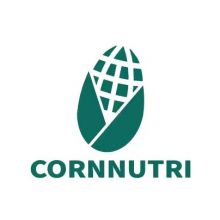Erythritol,sugar alcohol,calorie free,enzymolysis of corn starch,hyperglycemia,dietary management
USD $1.55 - $1.60 /Kilogram
Min.Order:5000 Kilograms
Quick Details View All >
Shanghai Unitebiz International Trade Co.,Ltd.
Allulose,D-allulose,Psicose,independent of insulin,calorie free
Dextrose Monohydrate,two-enzyme method,corn starch hydrolysis,beer beverage
Dextrose anhydrous,glucose powder,bulk pharmaceutical chemicals,two-enzyme method
Maltodextrin,hydrolysis of corn starch,soluble dextrin,confectionery,coffee,chocolate,CAS 9050-36-6
Maltodextrin,hydrolysis of corn starch,soluble dextrin,confectionery,coffee,chocolate,CAS 9050-36-6
Product Details
Erythritol is a four-carbon sugar alcohol with sweetening properties that is used by the food industry as a food additive . Erythritol is a naturally occurring sugar alcohol found in fruit and fermented foods.
Erythritol has about 0.2 calories per gram and is about 60% to 80% as sweet as sugar. By comparison, there are 4 calories per gram of sugar. And unlike sugar, sugar alcohols like Erythritol does not react with plaque bacteria in your mouth and does not cause tooth cavities.
Erythritol has also been shown to have an antioxidant in the body and may help protect against hyperglycemia-induced vascular damage. Hyperglycemia, oxidative stress, and the onset and progression of diabetic complications are strongly linked. Reduction of oxidative stress could be of utmost importance in the long-term treatment of diabetic patients.
Erythritol is primarily used in chewing gums, baked foods and beverages, as well as occurring in fruits such as pear, watermelon and grapes. Sugar alcohols differ from artificial sweeteners because they are exist naturally through plants. Erythritol manufacturers create the sweetener in granulated and powdered forms . Erythritol appears as a white crystalline, odorless product which rapidly dissolves in water (up to 60 g/100 ml at 30°C) to give a brilliantly clear, low viscosity, colorless solution.
Erythritol is the first polyol to be industrially manufactured from corn and wheat starch by a fermentation process. The starting material is a simple sugar-rich substrate which is fermented using a yeast (either Moniliella pollinis or Trichosporonoides megachliensis) to yield erythritol. The product is then crystalized to 99.5% purity from the filtered and concentrated fermentation broth.
Erythritol has a shelf life of 2 years.
Sugar alcohols are carbohydrates that occur naturally in certain fruits and can also be manufactured.
Everyday Uses of Erythritol
Erythritol can be used in a variety of products including:
Beverages
Baked Goods
Dairy
Ice-cream
Confectionary
Tabletop Sweeteners
Nutritional and Dietary Products.
Contact Supplier

You May Like






New Products
Popular Searches
Recommended Products
Find Similar Products By Category